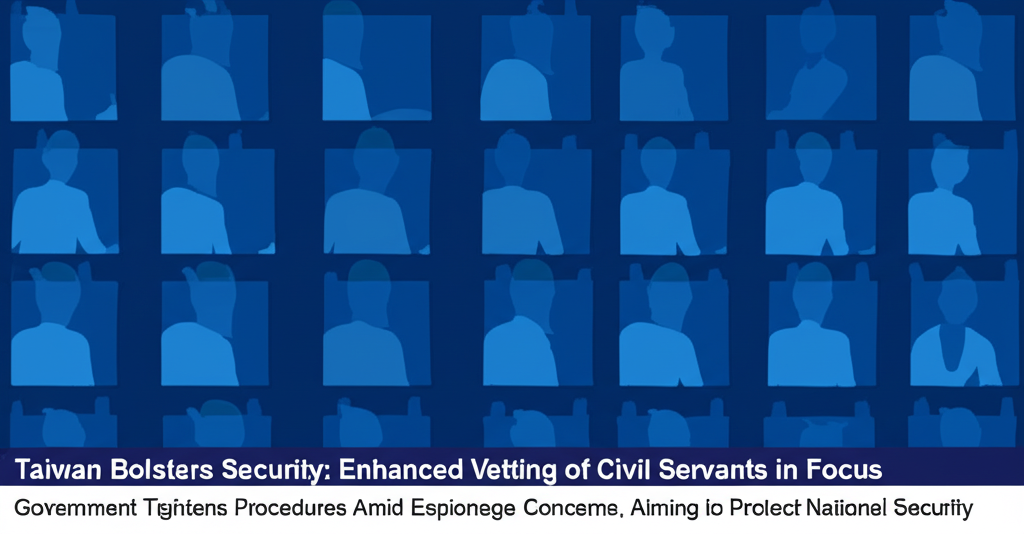Taiwan Bolsters Security: Enhanced Vetting of Civil Servants in Focus
Government Tightens Procedures Amid Espionage Concerns, Aiming to Protect National Security

Taipei, Taiwan – Premier Cho Jung-tai (卓榮泰) has initiated a comprehensive review and reinforcement of security vetting procedures for civil servants, signaling a significant shift in Taiwan's approach to national security. This move follows investigations into potential espionage involving senior government officials, highlighting the need for enhanced vigilance.
Cabinet spokesperson Michelle Lee (李慧芝) announced that Premier Cho has instructed a reevaluation of the current security vetting system, emphasizing the imperative to "prevent infiltration through every possible means by foreign hostile forces." This directive underscores Taiwan's commitment to safeguarding against potential threats.
Minister without Portfolio Ma Yung-chen (馬永成) has been assigned the task of formulating specific measures to improve the vetting system within a two-week timeframe. The focus will be on strengthening existing protocols and implementing more rigorous checks.
Currently, security vetting of public servants is governed by Article 4 of the "Civil Servant Employment Act" (公務人員任用法). This legislation authorizes government agencies to conduct "special vetting" of applicants for positions involving national security matters, focusing on character and loyalty. However, recent cases have raised concerns about the effectiveness of these procedures.
One high-profile case involves Ho Jen-chieh (何仁傑), a former assistant to Joseph Wu (吳釗燮), who served as Foreign Minister and National Security Council (NSC) chief. According to reports, Ho underwent a background check in 2016, but no subsequent reviews were conducted during his eight years of service.
Directorate-General of Personnel Administration head Su Chun-jung (蘇俊榮) suggested that the government "might consider doing annual security checks in the future" to address the gaps. The Ministry of Foreign Affairs stated that Ho received a "regular security check" upon joining the ministry, but was not subject to "special vetting" under the current regulations.
Spokesperson Lee also indicated that the Cabinet is examining the current system, which primarily bases vetting on job titles and rank, rather than the level of access to sensitive information. This is one of the key areas the review will address to ensure a more robust and effective vetting process.
